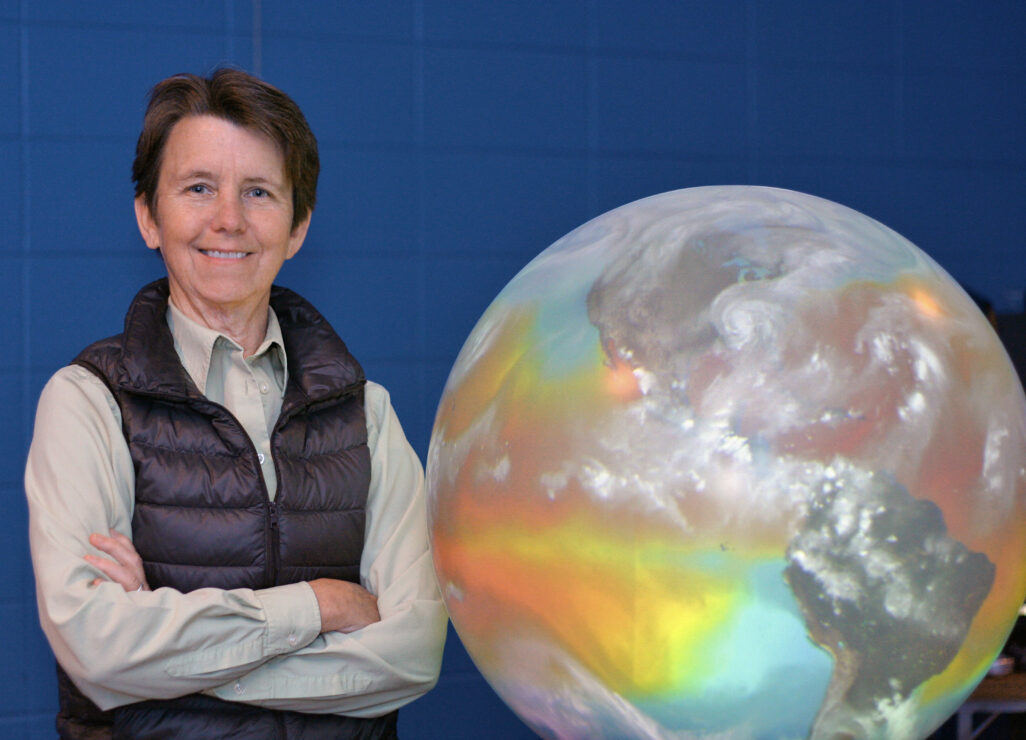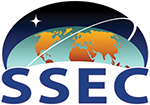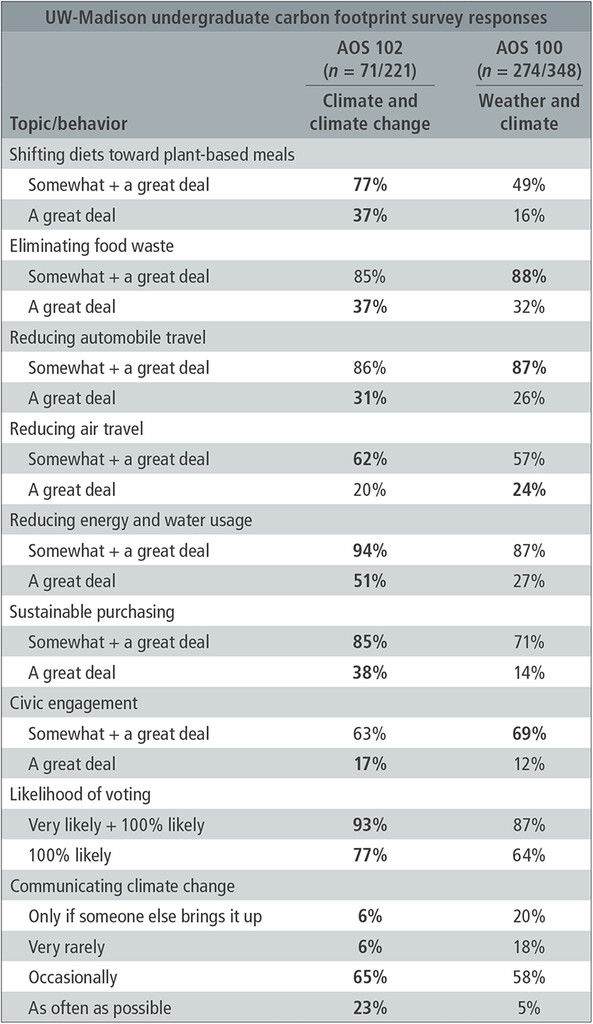Education as Mitigation – Climate education inspires student action
To combat climate change, action is required on large and small scales. Individual efforts are part of the equation that can lead to greater collective action.
A recent study published by University of Wisconsin–Madison educators in the Bulletin of the American Meteorological Society investigated climate education and the connection between knowledge gains and behavior change. The results contradict a long-standing concept in the social sciences known as the knowledge-action gap – the idea that knowledge alone does not motivate behavior change.

“For years climate change educators were up against a knowledge-action gap where sharing the science did not inspire behavior change,” says Margaret Mooney, director of education and public outreach at the Cooperative Institute for Meteorological Satellite Studies and UW–Madison adjunct professor. “And while we could document knowledge gains in undergraduates who took our course on climate and climate change, we lacked insight around whether they were doing anything with their new knowledge.”
To test this, Mooney and her co-authors developed a survey on carbon footprint and civic engagement and compared responses from two separate undergraduate courses offered by the UW–Madison Department of Atmospheric and Oceanic Sciences: Weather and Climate (AOS 100) and Climate and Climate Change (AOS 102).
AOS 100 is an introductory meteorology course that teaches fundamental principles of weather and climate, whereas AOS 102 focuses on the science of climate change and its impact on society. AOS 102 is applicable towards a certificate in sustainability at UW–Madison and challenges students to consider tradeoffs of climate solutions and effectiveness of sustainability practices.
The surveys were sent to students who took AOS 102 between 2018-2021 and students who took AOS 100 in 2021. Remarkably, survey responses from both AOS courses suggested the absence of any knowledge-action gap with a majority of UW–Madison students modifying personal behaviors to mitigate climate change. However, students who completed AOS 102 (Climate and Climate Change) indicated greater behavior change, with 93% indicating being more civically engaged in issues around climate change, including voting in upcoming elections, Other actions include an increased likelihood to reduce automobile travel and food waste.
“We did show that AOS 102 had a greater response around behavior modification that reduces carbon footprint,” says Mooney. “Students who took our course were five-times more likely to discuss climate change with family and friends – that’s huge.”
AOS 102 student sentiments are also demonstrated in the course’s capstone assignment where they submit a short, two-minute video explaining their thoughts in response to the question, “What do you think about climate change?” Student speeches encompassed a diversity of opinions about the existential threat of climate change, ways to address societal challenges and personal changes to their daily routines.
AOS 102 student testimonials reinforce the recent findings in the BAMS article showing how course content on climate and climate change can better galvanize actions to address the climate crisis than a traditional introductory meteorology course. Notably, this is one of the first studies to document the efficacy of education as a climate mitigation tool. The AOS 102 course is available to science and non-science majors as an online summer course since 2013.
This work is supported by CIMSS.

